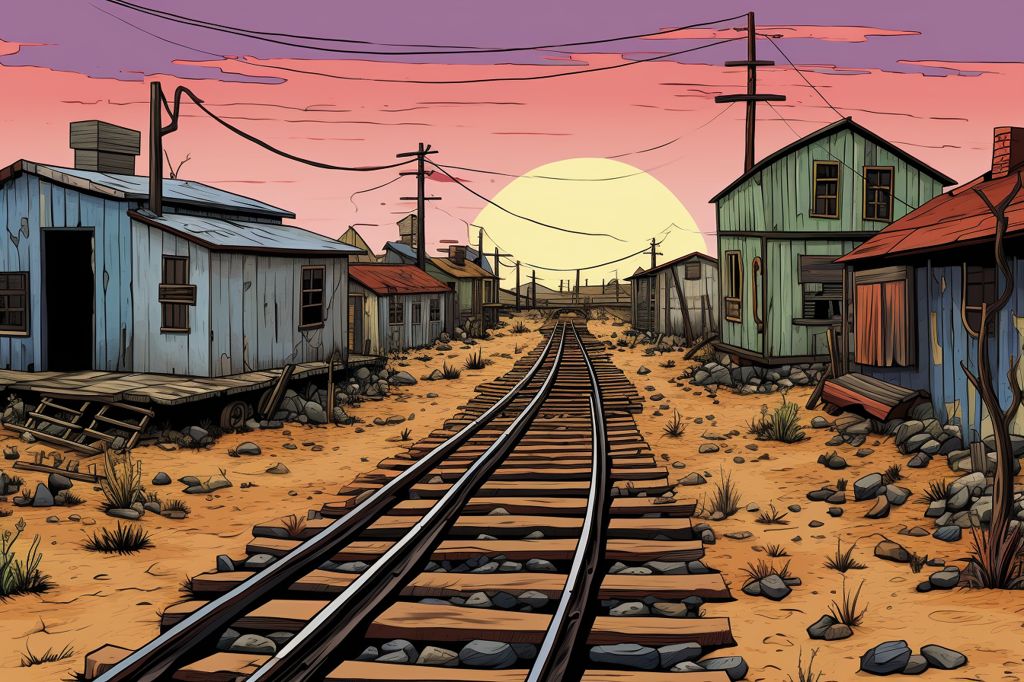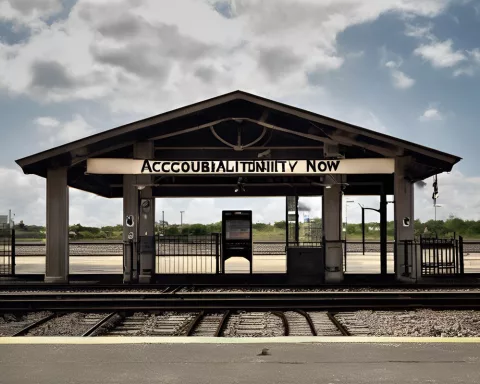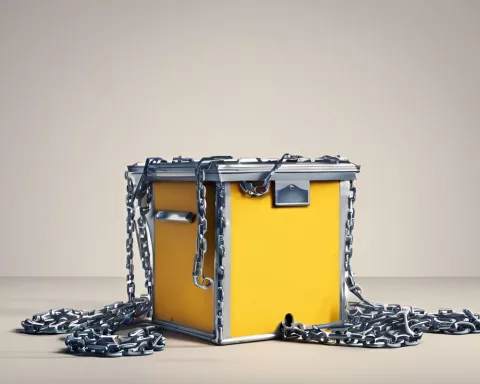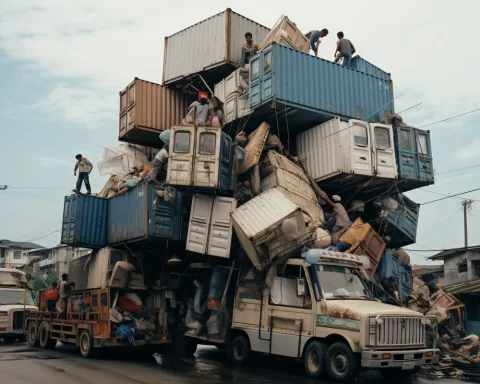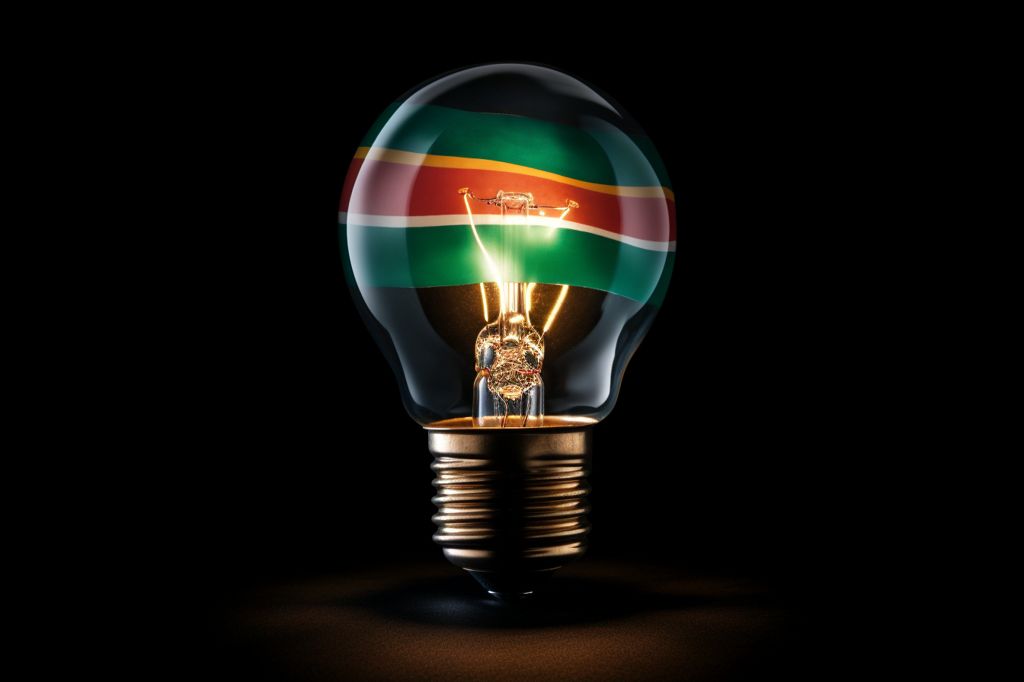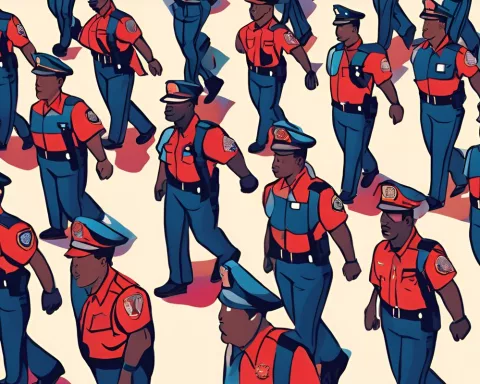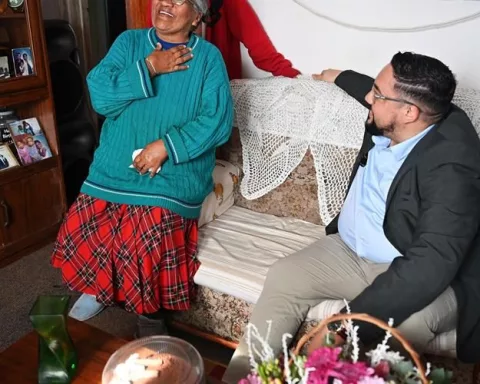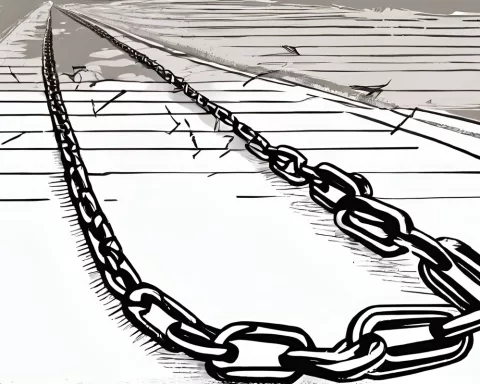PRASA’s plan to relocate 900 households along a section of the railway line in Cape Town has met resistance from traditional authorities. The proposed relocation site near the Stock Road train station in Philippi East conflicts with traditional circumcision rituals that take place on the land during the months of June and December. The Somagwaza Institute, a non-profit organization dedicated to preserving traditional Xhosa culture, has taken a firm stance against the plan and is actively opposing it. The future of the Metrorail Central Line remains uncertain as the conflict continues.
PRASA’s Controversial Relocation Plan
In Cape Town, a complex situation is developing as the Passenger Rail Agency of South Africa (PRASA) has put forth a proposal to temporarily move around 900 households that currently reside along a section of the railway line between Nyanga and Khayelitsha. Operations on the Metrorail Central Line were halted in late 2019 due to widespread theft and vandalism of equipment, which was further aggravated by PRASA’s termination of security contracts. The issue escalated during the Covid-19 lockdown in 2020 as shacks were constructed on the inactive line and railway reserve.
PRASA has pinpointed an open area near the Stock Road train station in Philippi East as the relocation site for these households. The plan was disclosed at a Standing Committee on Public Accounts (SCOPA) meeting in Parliament on 29 August. However, traditional leaders in Philippi are objecting to the proposal, arguing that the land serves as a site for traditional circumcision rituals during the months of June and December.
Somagwaza Institute’s Firm Stance
Sikelela Zokufa, the chairman of the Somagwaza Institute—a non-profit organization committed to preserving traditional Xhosa culture—has adamantly stated that the organization will not allow housing construction on the proposed site. Zokufa alleges that the Somagwaza Institute was not involved in the planning process and only became aware of it when it was unveiled during an imbizo hosted by Minister of Transport Sindiswe Chikunga on 11 September.
Shocked by the proposal, Zokufa reached out to and informed his executive committee members. He believes that the loss of the land would be a major blow to the community, as it accommodates hundreds of boys from Nyanga, Philippi, and Gugulethu during each initiation season. He declared, “We won’t have a place to perform these rituals to manhood, and the government is aware this is the only land around here that we have.”
Zokufa remains steadfast in his opposition to using the Stock Road site for relocation: “I promise you the Stock Road site is not going to be used for relocation of railway line shacks. We are being undermined, disrespected, oppressed, and our culture is not taken seriously. We are not going to fold our arms and do nothing. We will fight tooth and nail.”
Delayed Progress and Uncertain Future
During the SCOPA meeting on 29 August, attended by various ministers, Cape Town’s mayor, and PRASA’s CEO, it was revealed that the relocation of families is long overdue. SCOPA chairperson Mkhuleko Hlengwa instructed national departments and the Cape Town municipality to work together to relocate the households living on the railway line and rail reserve. This initiative, called Operation Bhekela, aimed to complete the assessment of the relocation of the households, clear bush on the Stock Road station site, and address legal issues regarding land ownership by 20 September.
However, the follow-up meeting with SCOPA did not occur on 20 September due to a parliamentary question session. A tentative date for the next SCOPA session on the railway line has been scheduled for 11 October.
At the 29 August meeting, PRASA CEO Hishaam Emeran announced that the clearing of vegetation on the Stock Road station site would commence that week, and the objective was to initiate engineering work the subsequent week. Four weeks after Emeran’s statement, however, no evidence of vegetation clearing or other activities can be found at the site.
The current circumstances cast doubt on former transport minister Fikile Mbalula’s claim in 2021 that the Central Line would be operational by December 2022. As the conflict between PRASA and traditional authorities persists, the destiny of the affected households and the future of the Metrorail Central Line hang in the balance.
1. What is PRASA’s plan in Cape Town?
PRASA’s plan is to temporarily relocate around 900 households that reside along a section of the railway line between Nyanga and Khayelitsha to an open area near the Stock Road train station in Philippi East.
2. Why has PRASA proposed this plan?
Operations on the Metrorail Central Line were halted in late 2019 due to widespread theft and vandalism of equipment, which was further aggravated by PRASA’s termination of security contracts. The issue escalated during the Covid-19 lockdown in 2020 as shacks were constructed on the inactive line and railway reserve.
3. What is the issue with the proposed relocation site?
Traditional leaders in Philippi are objecting to the proposal, arguing that the land serves as a site for traditional circumcision rituals during the months of June and December.
4. Who is opposing PRASA’s plan?
The Somagwaza Institute, a non-profit organization committed to preserving traditional Xhosa culture, has taken a firm stance against the plan and is actively opposing it.
5. Why is the Somagwaza Institute opposing the plan?
The loss of the land would be a major blow to the community, as it accommodates hundreds of boys from Nyanga, Philippi, and Gugulethu during each initiation season.
6. When was the plan disclosed?
The plan was disclosed at a Standing Committee on Public Accounts (SCOPA) meeting in Parliament on 29 August.
7. What is the current status of the relocation plan?
SCOPA chairperson Mkhuleko Hlengwa instructed national departments and the Cape Town municipality to work together to relocate the households living on the railway line and rail reserve. However, the follow-up meeting with SCOPA did not occur on 20 September due to a parliamentary question session. A tentative date for the next SCOPA session on the railway line has been scheduled for 11 October.
8. What is the future of the Metrorail Central Line?
The destiny of the affected households and the future of the Metrorail Central Line hang in the balance as the conflict between PRASA and traditional authorities persists. The current circumstances cast doubt on former transport minister Fikile Mbalula’s claim in 2021 that the Central Line would be operational by December 2022.

